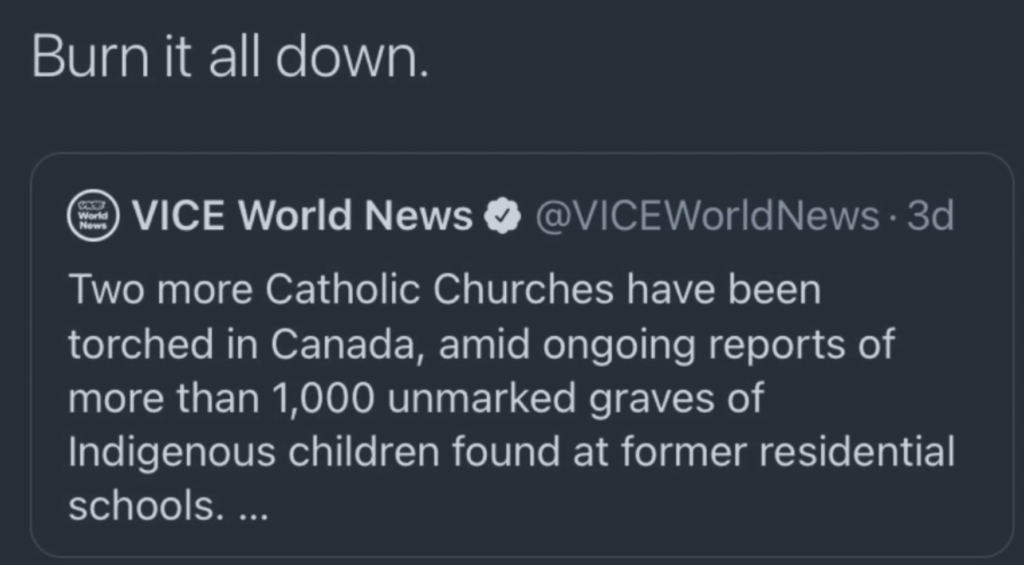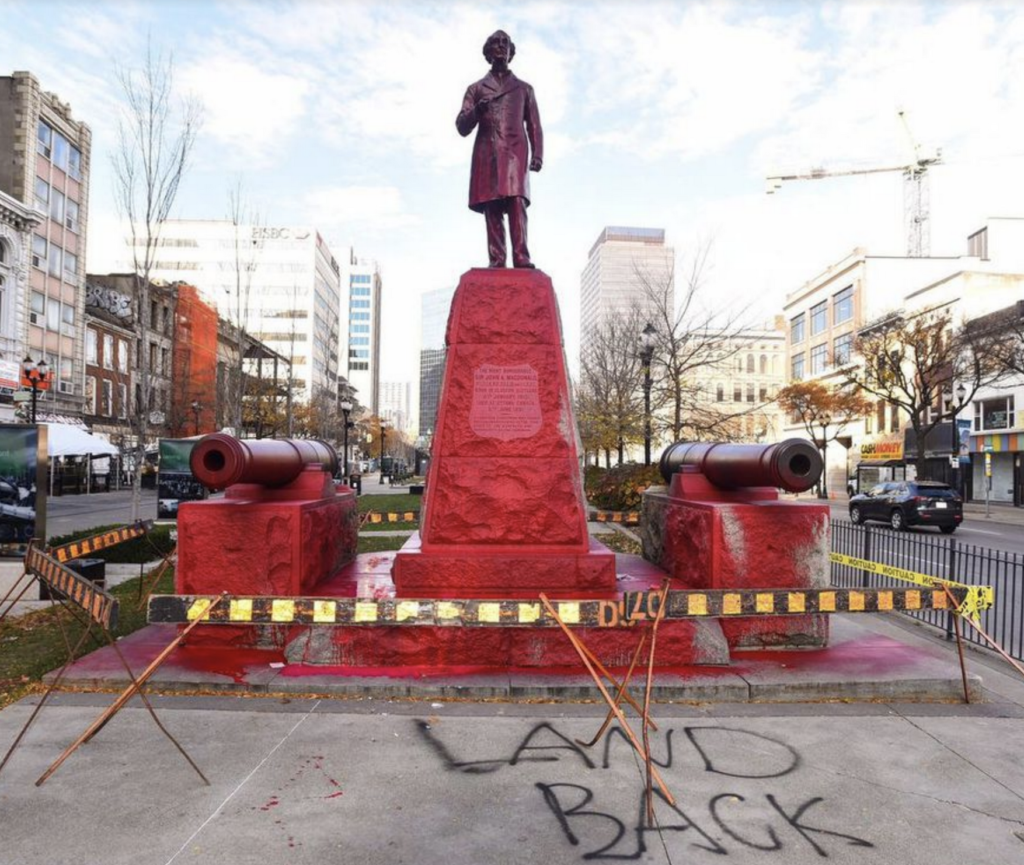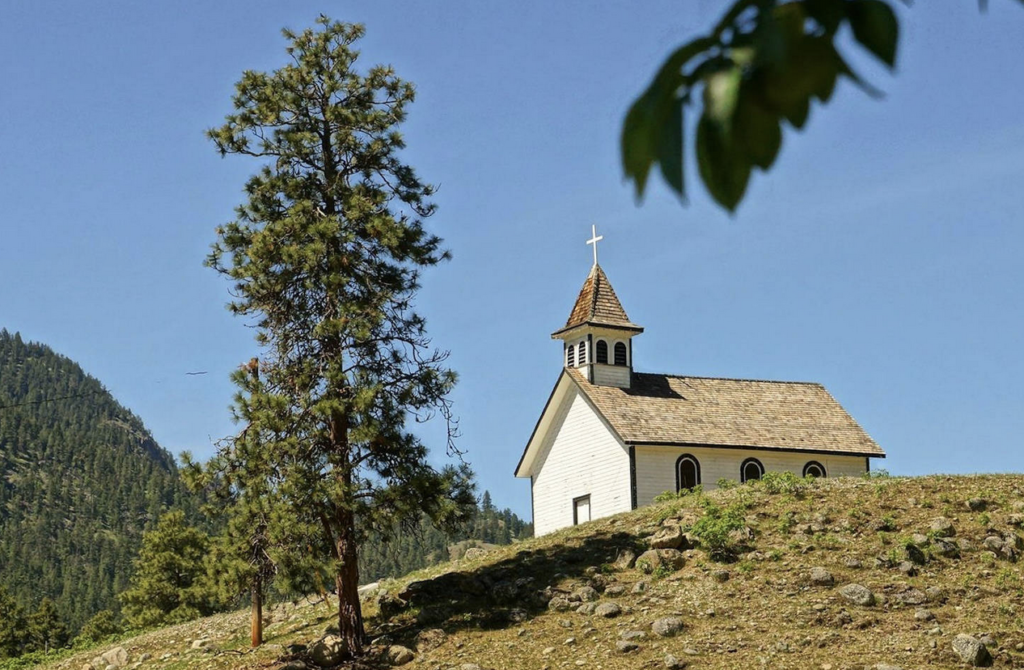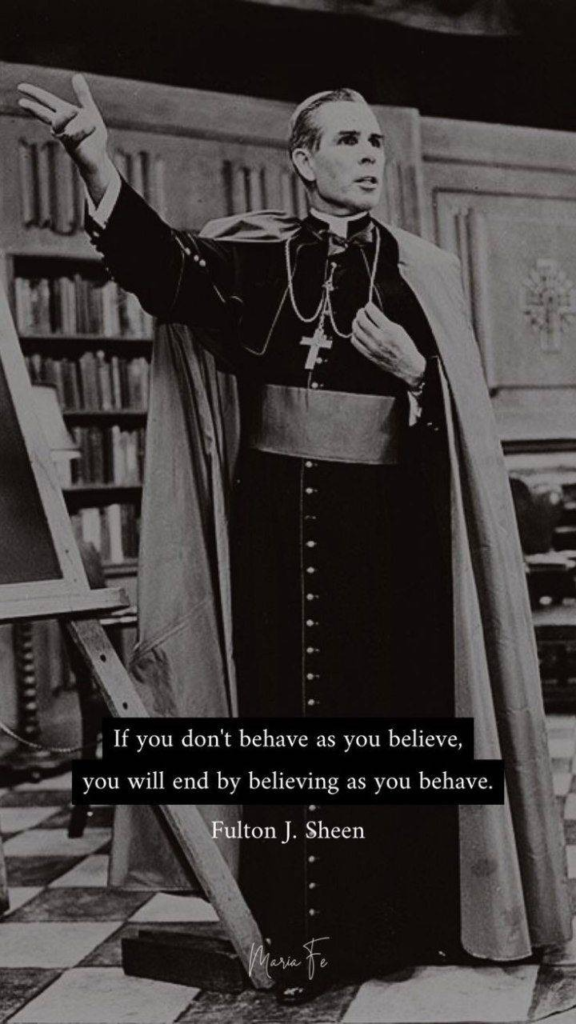by Crow Qu’appelle
Early last year, I wrote a piece called “In Defence of Religious Freedom”, which was published on Montreal Counter-Info, in which I called on anarchists to understand that the jailing of a Christian minister for holding church services was a milestone on Canada’s slide into authoritarianism. As far as I know, this article was the only anarchist outcry against this injustice.
For years, there has been a growing hostility of the part of the Left towards Christians, and it seems that things have only gotten worse, as some leftists now enthusiastically support the burning of churches.
Torching places of worships is more typically associated with fascists than anarchists, but some very confused people who identify as anarchists now see churches as valid targets for attacks.
Last year, following the discoveries of the unmarked graves of children at various residential schools in Canada, there was a wave of arson attacks and vandalism targeting Canadian churches.
Various anarchist websites, including North-Shore Counter-Info and It’s Going Down (both of whom I used to write for) framed these attacks in a positive light.
This follows a tweet by prominent anti-oppression activist Harsha Walia, who leads the B.C. Civil Liberties Association, in which she appeared to be cheering on church burnings. To make things worse, this person led an organization with a mandate to protect human rights, yet refrained from showing the slightest support for the rights of Christians to freedom of assembly during the COVID coup.

Church Burnings Are Hate Crimes
While I can certainly understand the rage and disgust that people feel at the history of colonialism, these kinds of attacks are attacks on real human communities, and I think that people who support these types of actions are mistaken in thinking that these are righteous acts.
It is not controversial that attacks on mosques and synagogues are hate crimes, whether or not a human being was physically harmed. Likewise, we would condemn attacks on churches with black congregations as hate crimes, such as the abhorrent mass shooting in which neo-nazi Dylan Roof murdered nine churchgoers in 2015.
So, are church burnings hate crimes? The Oxford dictionary defines the term “hate crime” as “a crime, typically one involving violence, that is motivated by prejudice on the basis of race, religion, sexual orientation, or other grounds.”

It bears keeping in mind that these were churches on indigenous lands, attended by indigenous people. We don’t know who the arsonists were, but we shouldn’t assume that they were indigenous.
If an attack on a church with a black congregation is seen as a hate crime, why aren’t attacks on churches with indigenous congregations hate crimes?
Anarchists over the past two decades have tended to reject the destruction of property as “violence” or as “terrorism”. Setting that aside for now, the term “hate crime” is commonly used in Canada to refer to hateful acts which do not include physical violence, such as racist graffiti or the use of racist slurs.
It certainly seems to me that church burnings fit the definition of “hate crime”. In the age of post-truth, we must resist the temptation to re-define words in accordance with our ideological biases. We should heed Orwell’s warnings about how political language can become corrupted by ideology.
An attack on a church is different from the destruction of a statue. I support the destruction of statues of genocidal colonists such as John A. MacDonald. The destruction of a church is different. For one thing, a church is not just a symbol, it is a community building where real activities take place. Weddings are held in churches, so are funerals. Community meals are held. Different kinds of meetings take place. A building serves real purposes to flesh-and-blood human beings, which a statue does not. But beyond this, an attack on a church is an attack on the members of that church, and if the members of that church are indigenous, then these arsons are attacks upon indigenous people.

But don’t take it from me. Take it from Carrie Allison, an elder of the Upper Similkameen nation, who is also a residential school survivor, after the Catholic church her ancestors built was burned to the ground.
“There have been many happy and joyful times with marriages from all over the world in that church, and for the couple that was to marry there next week, I am devastated,” she said.

She had a message for the arsonists: “You must have no feelings or respect for elders or ancestors. A lot of us suffered, but this is not how we do things, and this is not our way. It makes me so sick, sad, and I can only hope I do not know you. I feel sorry for you, and I hope you’re satisfied. When your hurt turns to rage, it is not healthy for you or your community.”
Not all of the churches targeted were Catholic, however, nor were they all associated with residential schools. After a 108-year-old Anglican church in New Hazelton was lit on fire in an arson attempt, the band council released a statement saying that this church had nothing whatsoever to do with residential schools. Just days later, it was burned to the ground.
On Canada day in Alberta, an African Evangelical church, whose congregation is composed of immigrants, was vandalized. A few days afterwards, a Vietnamese church in Calgary was also lit on fire.
How are African or Vietnamese immigrants responsible for Canada’s residential school program? These attacks are not legitimate acts of revenge against the perpetrators, anymore than attacks against mosques during the height of Islamophobia during the War on Terror were. They are racist hate crimes, and should be condemned by people who believe in universal human rights.
The thing that really concerns me is that there seems to be a decrease in the valuing of universal principles. If arson attacks against mosques and synagogues are wrong, arson attacks against churches are also wrong. An attack against the building within which a religious community gathers is an attack upon that community, not a righteous act of revenge for historical injustices committed by adherents of that religion.
There are certain elements within the anarchist milieu who do see Christianity as their enemy, and see churches as legitimate targets for arson attacks. This is very concerning to me, because I don’t agree that Christians are our enemies. They often help us. If you’ve been to many mass mobilizations, chances are that you’ve been hosted in a church free of charge by people who were sympathetic to your cause.

Christianity is not a monolithic entity. There are also many examples of Christians who have been on the right side of history. Martin Luther King was a protestant minister. His message was very much rooted in his Christian faith. I think we’d also do well to consider his message that “Hatred begets hatred, violence begets violence”.
Am I alone in feeling that church burnings risk worsening race relations? An attack on a place of worship should not be taken lightly. If people feel that they are under attack, they will become more tribal. These types of attacks will make certain groups of people distrust, hate, fear, and resent other groups of people more. It would seem to me that these kinds of attacks further the polarization of society that has been fuelled by Trumpism and the algorithmic mass manipulation of social media. It’s clear to me that society is being socially engineered through highly-sophisticated divide-and-rule tactics to be incapable of effective resistance. We play into their hands when we demonize out-groups, whether that out-group be antifa, Trump supporters, anti-maskers, or Christians.
As anarchists, the state is our enemy, and their means of maintaining their rule over the multitudes whose labour they depend upon is to keep us fighting each other. For many centuries, our rulers have used tried-and-true methods to keep the people from realizing that their true enemy is the ruling class.
I personally feel that we should be focused on finding common cause with people to diverse backgrounds, rather than focusing on the differences between us. We should be guided by love and the desire to create community, not by the desire for revenge.
It’s also very worrying to see the emergence of certain psycological factors, in the case of some white people supporting church burnings. I would propose that some of the pleasure that these people feel in seeing a symbol of colonialism destroyed is because it allows them to symbolically purge some of their own self-despise. In other words the church serves as a scapegoat. A white person properly schooled in anti-oppression politics possesses an almost Calvinistic degree of shame that they feel for being guilty of the crimes of their ancestors. By projecting their shame onto a symbol, they can be symbolically cleansed of their guilt, and the shadow aspects of the subconscious can be momentarily purged. It’s worrying beause this is the logic of the witch hunts. The woman is magically responsible for the shame of the male, and by taking vengeance upon her, he redeems himself. This is evidence of a cultural psychosis, and such things tend to culminate in mass murder. Do people really want to go down that road?
It seems clear to me that if the state oppresses us by dividing-and-conquering, the obvious thing to do is the opposite—that is to say, uniting-and-resisting. Instead of focusing on differences between us, we should focus on connecting as human beings. Really, whatever people’s religion, ethnicity, and language is, we mostly want the same things: love, happiness, respect, laughter, sex, food, safety, good health, a sense of meaning and purpose. If you have love in your heart, you can extend it outwards to others, and connect with them on that basis. It’s not necessary for people to agree on everything in order to be able to work together towards shared objectives. If we want to build a movement that is capable of recasting the collective dream that we call reality, we must organize on this basis. Love is only force capable of overcoming the evil that threatens to turn the world into a living hell.
Who is behind these attacks?
Another element to consider is that we don’t know who are doing these actions. It could be pissed-off indigenous people, of course, but it could also be settlers. It could be intelligence agents, white Leftists, or black metal kids excommunicated by their Jehovah’s Witness parents. Who knows?
So to people who see church burnings as acts of anti-colonial resistance, let me ask you this: If you were to discover that it was white people who were burning down churches with mostly indigenous congregations, would you feel differently about these actions? It is interesting to note that, out of dozens of arsons, it seems that NO ONE has been criminally charged. We are expected to believe that all of these actions were spontaneously undertaken by pissed-off community members in dozens of different communities, but this is simply a hypothesis without supporting evidence.
I think that the assumption that many woke activists is that Christian = white oppressor, and this is fallacious. Many people of African descent in Canada are Christians, and there are many devout Christians who are indigenous.
Many Christians will interpret church burnings as attacks on Christianity in general, that is to say an attack upon the global community to which they belong. If anarchists support church burnings, they will be alienating potential allies, many of whom are not white and bear no responsibility for the history of colonialism in Canada.
Hegemonic and counter-hegemonic currents exist within every cultural phenomenon
I am concerned that, in the age of post-truth, anarchists are losing nuance in their understanding of reality. Things are not so simple as Christianity = Bad, Science = Good. There exist within Christianity, as within every cultural phenomenon, be it comedy, soccer, or science, tendencies which support the dominant order, and are thus hegemonic, and tendencies which go against the state sanctioned performance of reality, and are thus counter-hegemonic.
Personally, I am very much opposed to the Vatican and the institution of the Roman Catholic church, and I agree that its history is that of oppression, social control, and countless crimes against humanity. They have blood on their hands, and their crimes should be exposed, condemned, and their moral authority refused, so far as I am concerned. But there’s a lot more to Catholicism than just the Vatican. I am writing this from Chiapas, Mexico, where there a strong tradition of liberation theology. There are a lot of radical Catholic activists who have been working in solidarity with indigenous people, including Zapatistas, for decades.
When anarchists think of Christians, I’m guessing that they aren’t thinking of Zapatistas. But most Zapatistas are Mayan, and most Mayans practice a syncretic religion combining Catholicism and traditional Mayan spiritual practices. So like it or not, most Zapatistas are definitely believers in the power of the spirit of Christ, that is to say, Christian.
While states have undeniably used Christianity as a tool of social control and oppression for many centuries—in a multitude of ways—there have also been many groups who have had radical ideologies rooted in Christianity who have resisted state power. Sometimes religion serves state power, sometimes it resists it.
There are entire denominations of Christians who have opposed war and militarism for centuries, such as the Quakers, Mennonites, Hutterites, Amish, and Dhoukabours.
If you study these groups, and realize what the spiritual core of their teachings are, you may begin to see them as anarchists. This is because they share a belief in the central Anabaptist heresy: the doctrine of the “Priesthood of Believers; which is to say, the dogma that one doesn’t need a priest to act as intermediary between Man and God, and can act as their own moral authority, determining right and wrong for themselves and living in accordance with their own principles, and that it is the Will of God that they do so.
If that isn’t the core of anarchist philosophy, I don’t know what is. Really, anarchism is directly descended from anabaptism. Prior to the Enlightenment, most rebels framed their struggle in religious terms. Anarchism does not emerge out of nowhere in the aftermath of the French Revolution, but emerged as a philosophical tendency when rationalist thinkers separated the ethical core of anabaptism from its religious origins.
I would recommend to anyone interested in this subject that you read Voltaire’s Candide, in which the Anabaptist philosopher Pangloss plays a prominent role. Anarchism is the spirit of anabaptism freed from Abrahamic religion. Anarchism could well be considered a branch of protestantism.
There is a also a history of Christians who have called themselves anarchists. One of them is one of the most revered authors in the history of literature, Leo Tolstoy, and another was one of the most insightful theorists of the 20th century, Jacques Ellul, who wrote the book on Christian anarchism. In the U.S., the Christian anarchist tradition continues through the Catholic Workers, who have a long history of praiseworthy activism. Secular and Christian activists have worked together in myriad ways for decades. So why are Christians now so reviled that the torching of their sanctuaries are greeted with applause?
Has the anarchist movement come to a fork in the road?

I am sincerely hoping that this kind of anti-Christian rhetoric does not become normalized in anarchist media.
I for one will not associate myself with anyone who advocates for church burnings, anymore than I would associate with someone who advocates for mosque or synagogue burnings.
I know that I am not alone in this sentiment, so perhaps the anarchist movement has come to a fork in the road.
If some “anarchists” double down on supporting hate crimes, the rift will be official, and probably irreconcilable. We will go our separate ways, perhaps even becoming opponents. As for myself, I will not regard these “anarchists” as anarchists at all, but as proto-fascists, who must be counted among the enemies of freedom.
The past two years have taught us many valuable lessons, and one of them is that if you don’t behave as you believe, you will end up believing as you behave.
If you conform in action, in time your thoughts will follow suit. By complying with authoritarian measures, many former anarchists converted to statism. Perhaps some of them will recall their values as the mendacity of the state propaganda machine becomes ever more blatant, but we may also have to accept that many are too far gone, and that they have surrendered their minds to Leviathan.
But this too shall pass. Even if the meaning of the word “anarchism” becomes corrupted and comes to refer to the exact opposite of its true meaning, the spirit of anarchy will always re-emerge, because it is the antithesis to oppression.
Whatever you call it, there exists a philosophy of freedom that will always be reborn, so long as there are humans, because it is born of something that is innate to all of us, and that is the desire to be free.
Long live anarchy!
A List of Churches Vandalized or Burned Down in Canada in 2021
ARSONED OR BURNED
St. Paul’s Anglican Church,Gitwangak First Nation, BC.,
- On June 26th suspected arsonists lit a fire on the door steps of the church, several days later arsonists returned and burned the church completely down.
St. Columba Church,Tofino, BC.,
- On July 2nd, firefighters were called to put out a fire at the church. One side of the church was seriously damaged but the fire was eventually put out.
Saint Ann’s Catholic Church, Princeton, BC.,
- St. Ann’s Catholic Church was one of two churches burnt down on June 26 on Similkameen First Nations territory. The over 100-year-old building was engulfed in flames early Saturday morning. Nearby Chopaka Catholic Church was also burnt down only an hour later. Police are investigating whether the two incidents are connected.
Chopaka Catholic Church,Chopaka, BC.,
- On June 26, Chopaka Catholic Church was burnt down after a suspected arson targeted the building. St. Ann’s Church which was nearby was also burnt down only less than an hour prior. RCMP are treating both fires as suspicious but have yet to determine whether they were connected. The church was located on Similkameen First Nations land.
Sacred Heart Mission Church,Penticton, BC.,
- Sacred Heart Mission Church was burnt down on Monday, June 28. The church, which was built in 1910, was the second to be engulfed in the south Okanagan on the same day. Nearly 40 minutes away, St. Gregory Mission Church near Osoyoos was also burnt down. Sacred Heart Mission Church was located on Penticton Indian Band lands.
St. Gregory Mission Church,Osoyoos, BC.,
- St. Gregory Mission Church was one of two churches in the south Okanagan to have been destroyed by fire on June 28. The church, which is located on Osoyoos Indian Band land, was set on fire at 3:10 am on Monday. Investigators are continuing to look into the incident.
Grace Lutheran Church, Kelowna, BC.,
- On July 10, firefighters responded to a suspicious fire at the church in West Kelowna. The fire had engulfed the entire garage before being put out. The incident is currently under investigation.
Our Lady of Peace, Peace River, AB.,
- On July 3, arsonists attacked Our Lady of Peace Catholic Church with Molotov cocktails causing a fire. According to police, the suspects threw the incendiary devices through the church windows. Firefighters were able to put out the fire with minimal damage to the ƒbuilding.
House Of Prayer Alliance Church,Calgary AB.,
- Investigators with the arson unit are looking into a fire that broke out on July 4 at a local Calgary church. The fire damaged the building externally and also caused some smoke damage inside.
Siksika First Nation Catholic Church,Siksika, AB.,
- On June 28, RCMP and fire officials responded to a fire at Siksika First Nation Catholic Church. Firefighters were able to extinguish the fire before any significant damage took hold. According to an initial investigation, the fire was believed to have been set deliberately.
St. Jean Baptiste Parish,Edmonton, AB.,
- St. Jean Baptiste Parish church in Morinville was engulfed in flames on Wednesday, June 30. Fire crews attended the building around 3:20 am but were unable to fully extinguish the flames. The church was totally lost as a result of the fire.
Our Lady of Mercy Catholic Church, Kehewin, AB.,
- Our Lady of Mercy Catholic Church was completely destroyed following a fire that was deliberately set on Friday, July 9. An under-aged individual was arrested and charged with arson following the incident.
Co-Cathedral of St. Patrick, Yellowknife, NWT.,
- Yellowknife RCMP are investigating a suspicious fire lit at the Co-Cathedral of St. Patrick in Yellowknife on July 1. No injuries were reported and the building was slightly damaged. According to a statement from the diocese, the fire involved an incendiary device.
Polish Roman Catholic Church, Saskatoon, SK.,
- A former Polish Roman Catholic Church located on private property near Redberry Lake was burnt to the ground on July 8. A local resident had noticed smoke coming from the historic church’s general location and found the church to be engulfed in flames. Saskatchewan RCMP are investigating the incident.
St John’s Anglican Church, Saint Johns, Ont.,
- On May 12, the 200-year-old St John’s Anglican Church was set on fire after somebody doused the building with gasoline. Local First Nations authorities believe the fire was set in response to recent residential school grave announcements.
Johnsfield Baptist Church, Saint Johns, Ont.,
- Police with Six Nations of the Grand River are investigating a July 5 arson attempt. The suspect attempted to light the building on fire while residents were located inside on the lower level. The resident was able to extinguish the fire and claimed that he heard a car door slam shut before he came outside of the building. Following the arson attempt, residential school survivor Jessie Malcolm condemned the actions.
Saint Kateri Tekakwitha, Sipekne’katik First Nations, NS.,
- A suspicious fire broke out on June 30 on Sipekne’katik First Nations land at the Saint Kateri Tekakwitha church. According to investigators, threats targeting the church were circulating around the community before the fire was set. Firefighters were able to contain the flames but the fire managed to damage parts of the building before it was put out.
Samson United Church, Maskwacis First Nation, AB.,
- A fire broke out at Samson United Church in Maskwacis First Nations on June 19. The church is currently waiting on a final report on the fire. As a result of the blaze, the main floor experienced some interior damage and additionally, the basement was flooded.
Angus Bonner Memorial United Church, MB.,
- According to Manitoba RCMP, someone reported a fire at Angus Bonner Memorial United Church at 2 a.m. on July 5. By the time police arrived, the abandoned church was already on fire. The building was totally destroyed and police are treating the fire as arson.
St. George Coptic Orthodox Church
- Early morning on July 19, firefighters responded to a fire at St. George Coptic Orthodox in Surrey around 3:30 am. The flames engulfed the entire structure and only a few charred pieces of the walls remained. Police are still investigating the fire.
Central Heights Church, Abbotsford, BC.,
- Abbotsford Police Department is investigating a July 21 arson incident at Central Heights Church. A suspect described as 30-40 years old, male, dark-skinned and wearing a bright yellow rain jacket with a grey baseball hat is being sought by authorities.
Little Flower Mission Church, Fox Lake, AB.,
- RCMP are investigating an arson incident after a fire was deliberately set at Fox Lake Community Church on Saturday, August 7, 2021. The building sustained significant interior damage.
St. Mary’s Parish, Prince George, BC.
- On July 26, a suspect placed two containers of gasoline near St Mary’s Parish church and lit them on fire. The incident caused the side of the church to catch aflame. Police are still investigating the incident.
Knox United Church, Prince George, BC.
- Police responded to a report of an individual spraying flammable material and spray painting an alley near the church. Messages made reference to the residential school findings.
St. Andrew’s United Church, Prince George, BC.
- Fire services responded to a structure fire at St. Andrew’s United Church on July 4. The outside of the building was damaged as a result of the fire. Police are still investigating the matter.
VANDALIZED
St. Augustine’s Parish, Vancouver, BC.,
St. Jude’s Parish, Vancouver, BC.,
St. Joseph’s Parish, Vancouver, BC.,
St Joseph’s Church, Kamloops Indian Band, BC.,
Cathedral of Mary Immaculate, Nelson, BC.,
St. Luke’s Parish, Calgary AB.,
Sacred Heart Church & Columbarium, Calgary AB.,
Grace Presbyterian Church, Calgary AB.,
St. Elizabeth of Hungary Catholic Church, Calgary AB.,
St. Anthony’s Catholic Parish, Calgary AB.,
St. Joseph Catholic Church, Calgary AB.,
St. Mary’s Cathedral,Calgary AB.,
Assumption of the Blessed Virgin Mary Ukrainian Catholic Church, Calgary AB.,
All Nations Full Gospel Church, Calgary AB.,
Holy Trinity Church,Calgary AB.,
St. Anthony’s Catholic Parish, Calgary AB.,
St. Bonaventure Church, Calgary AB.,
Our Lady Queen of Poland Catholic Church (Polish) – Kosciól Matki Bozej Królowej Polski, Edmonton, AB.,
Holy Rosary Catholic Church (Polish) – Kościół Różańca Świętego, Edmonton, AB.,
Horse Lake Mennonite Church, Duck Lake, SK.,
St. Paul Co-Cathedral, Saskatoon, SK.,
First Presbyterian Church, Brandon, MB.,
St. Nicholas Ukrainian Catholic Church, Fisher Branch, MB.,
Basilica of Our Lady Immaculate, Guelph, Ont.,
Merciful Redeemer Parish,Mississauga, Ont.,
Cathedral Of St Peter-In-Chains, Peterborough, Ont.
Our Lady of Good Counsel Church, Sault St. Marie, Ont.,
Basilica Cathedral, St. John’s, NL.,
St. Peter and St. Paul’s Anglican Church, Victoria, BC
First Hamilton Christian Reformed Church,Hamilton, Ont.,
Mount Tzouhalem Cross, North Cowichan, BC
St Joseph’s Roman Catholic Church,Bridgewater, NS.,
St. Peter’s Roman Catholic Church,New Westminster, BC.,
St. Joseph’s Church, Radium Hot Springs, BC.,
Paroisse Sainte-Anne-Des-Pins, Sudbury, Ont.,
St. Peter’s Cathedral Basilica, London, Ont.,
Ukrainian Orthodox Church Of All Saints, Kamloops, BC.
St. Augustine of Canterbury Church, Brandon, MB.
St. Francis Xavier Mission Catholic Church, Kahnawake, QC.
Sacred Heart Cathedral, Prince George BC.
St. Philip Anglican Church, Oak Bay, BC.
St. Andrew’s Cathedral, Victoria, BC.
Hedley Grace Church, Hedley, BC.
I am not personaly a Christian, altough there is in my mind, only one God, and my political beleifs are inseperable from my faith, I have worked with many fine Christians these last two years, and had many great conversations, they often remark “that they are surprised we have so many things in common”. I see a lot of ancoms especialy riding the Christian hate wave, as they forget that there are different Jesuses, There is the Roman-Jesus as I call him/it wich was usurped as a means of control, then there is the personal Jesus that can bring one solace and hope, THEN theres my kind of Jesus, the one that pulled out his whip and overturned all the bankers tables in a fit of rage, inside the temple!
When it comes to church burnings, I can’t remember one seemingly political church burning in my part of the world, it might be different in Canada, But where I’m from they’re usualy perpetuated by vulgar-satanists or troubled black metal kids, I remember once a long time ago, the Norwegian black metal band “immortal” was interviewed and they said they didn’t support church burnings, because the government just steals peoples money to rebuild them again.